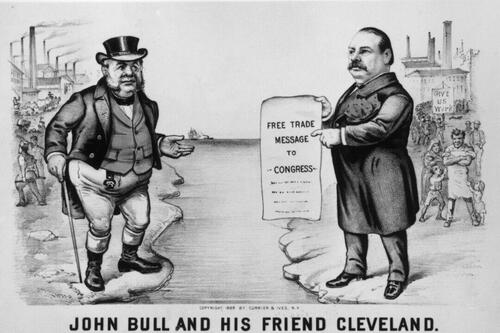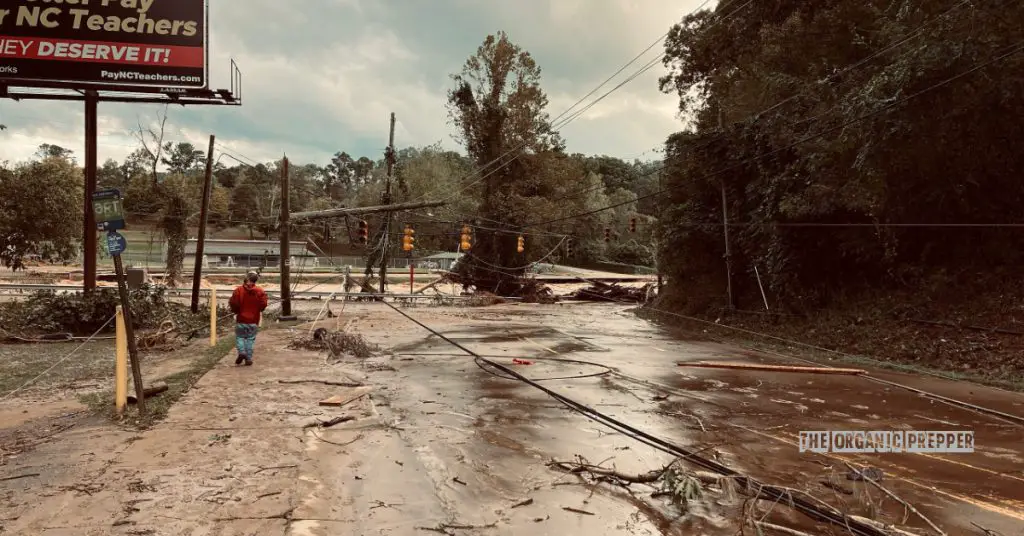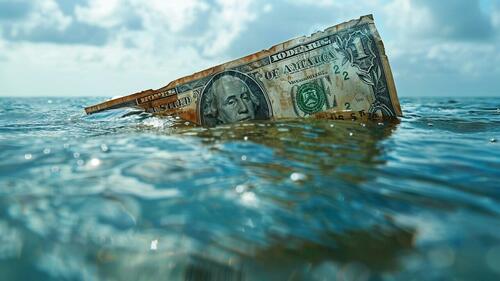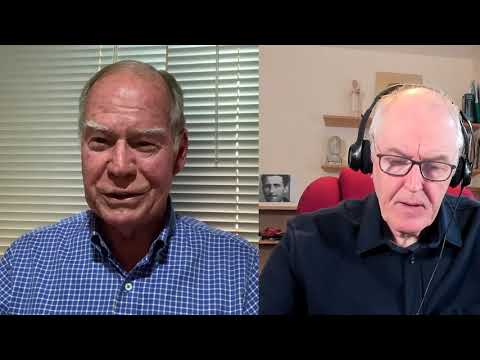Submitted by Open the Books
Campaign season brought with it a steady stream of accusations that various parties and platforms were spreading misinformation and disinformation.
Most recently, the scandals at FEMA over avoiding homes with Trump signs was quickly slapped with a “misinformation” label…until FEMA itself admitted it had happened. MSNBC anchor Jen Psaki suggested “laws have to change” to combat the scourge.
With the misinformation category being weaponized across the political spectrum, we took a look at how invested government has become in studying and “combatting” it using your tax dollars. That research can provide the intellectual ammunition to censor people online.
Since 2021, the Biden-Harris administration has spent $267 million on research grants with the term “misinformation” in the proposal.
Of course, the Covid pandemic was the driving force behind so much of the misinformation debate. Sure enough, the feds have spent at least $127 million in grants specifically targeted to study the spread of “misinformation” — or to help people “overcome” it, so to speak — by persuading them to go along with Covid-related public health recommendations and mandates.
In one particularly brazen instance, $200,000 was spent slandering President-elect Trump himself. The grant resulted in a paper suggesting populist leaders and movements in various countries kept people from coming together in “solidarity” and public officials need to have the “main say” on health guidance next time.
In other words, it would be better if your voice were silenced in favor of the “expert” class.
BACKGROUND
The COVID-19 pandemic instigated a rush of funding for research and projects addressing misinformation. At the time bureaucrats like Anthony Fauci contended that false information spread online undermined scientific recommendations coming from the government. Many of those government recommendations—vaccines for children, masking and double masking, and six feet for social distancing—have since been found to have dubious scientific basis.
The federal government used both carrots and sticks, in the form of grants and censorious pressure campaigns, in the name of combating COVID misinformation. At the same time, it was working hand in glove with social media companies to silence critics of repressive COVID-19 policies.
There is robust documentation by now proving that the Biden-Harris administration worked closely with social media companies to censor content deemed “misinformation,” which often included cases where people simply questioned or disagreed with the Administration’s COVID policies.
Earlier this year the Supreme Court ruled that such activities did not violate the First Amendment, but Meta CEO Mark Zuckerberg admitted such pressure was “wrong;” Tesla CEO Elon Musk purchased Twitter (now X) in part because of the company’s extreme restrictions on speech during COVID.
In February the U.S. House Committee on the Judiciary and the Select Subcommittee on the Weaponization of the Federal Government issued a scathing report against the National Science Foundation (NSF) for funding grants supporting tools and processes that censor online speech.
The report said, “the purpose of these taxpayer-funded projects is to develop artificial intelligence (AI)-powered censorship and propaganda tools that can be used by governments and Big Tech to shape public opinion by restricting certain viewpoints or promoting others.” $13 million was spent on the censorious technologies profiled in the report.
While the NSF was singled out for particularly egregious ideology-driven behavior, the full universe of misinformation-related spending in the federal government is much larger and goes far beyond colluding with the tech sector to restrict opinions online.
Federal spending records show at least $127 million tax dollars funding anti-misinformation efforts directly related to COVID-19 for a variety of activities, from on-the-ground advocacy working to dispel vaccine misinformation, to scientific studies on how supposed misinformation is spread online.
The result of all this was a record loss of trust in science and government and compounding economic and social disasters that may never be able to be fully quantified.
Learning to think critically and discern truth from lies is an important life skill, but the federal government has proven it is not capable of addressing that need responsibly. It’s the worst possible arbiter of truth, as it were, because it makes the state a gatekeeper of speech.
BY THE NUMBERS
Misinformation-related grants actually stretch back to FY2017 during the first Trump presidency. $273 million has been awarded for grant proposals containing the term since then—but there was an explosion of cash during the years-long Covid malaise. The vast majority of that figure ($267 million) was for grants that began in 2021 or later.
METHODOLOGY NOTE: This likely does not cover all grants given to combat misinformation, because transaction descriptions may not include this keyword, but the trend in spending illustrates a sudden explosion of interest in misinformation starting in 2021.
An enormous year-over-year jump in new grants occurred between 2020 and 2021—from $2.2 million to $126 million as the federal government poured money out to address COVID-related “misinformation,” among other projects.
While spending has since slowed down, it is still far higher than it was pre-pandemic in 2020: $18.3 million in new grants began in FY 2024.
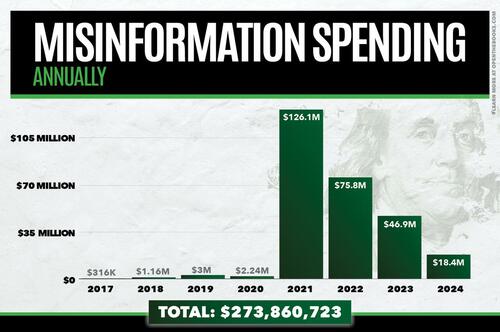
Grants mostly came from the Department of Health and Human Services ($185 million), followed by the National Science Foundation ($65 million), with the Department of State ($12 million) in a distant third. CHART: Click here for a breakdown of misinformation spending by agency.
An additional $17 million has awarded to misinformation-related contracts since 2020, and again, most of it ($12.5 million) was in FY 2021.
WHAT IS MISINFORMATION, ANYWAY?
According to the Department of Health and Human Services website:
“Misinformation is information that is false, inaccurate, or misleading according to the best available evidence at the time.”
The website goes on to detail supposed issues with COVID-19 related misinformation:
“During the pandemic, health misinformation has led people to decline vaccines, reject public health measures, and use unproven treatments. Health misinformation has also led to harassment and violence against health workers, airline staff, and other frontline workers tasked with communicating evolving public health measures.”
These definitions leave a lot of room for interpretation and abuse—who decides what the “best available evidence” is at any given time? And who decides which experts should be considered authoritative or not?
Famously, then-National Institute of Allergies and Infectious Disease director Anthony Fauci promoted the notion that people should stand six feet apart from each other to achieve “social distancing” to reduce COVID transmission.
In January of 2024 Fauci would admit to Congress that this recommendation had no scientific basis and “sort of just appeared.”
The six feet social distancing rule was used to justify extended school and business closures, wreaking economic havoc and leading to tremendous learning losses for children.
BACK TO THE START: MISINFO SPENDING UNDER TRUMP
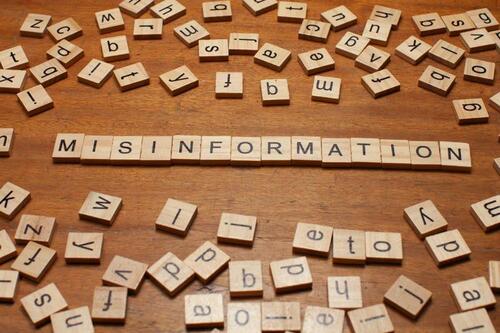
Before most of the furor, the Trump administration granted about $6.7 million in funding related to misinformation, the bulk of which were awarded in FY 2019 and 2020. Most of these grants—12 of the 16 total—funded technological developments to monitor social media and flag misinformation.
The earliest one of these was awarded in 2017: $316,000 from National Science Foundation for “training computers and humans to detect misinformation by combining computational and theoretical analysis.”
No such grants were given out domestically in 2018, but in 2019 over $2 million were awarded for projects with titles like “Online Dynamics of Misinformation” and “Social Media and Mass Communication: Curriculum Development to Combat Misinformation.”
Spending stayed about the same at $1.7 million in FY 2020 for six projects, including two that directly address COVID:
-
$149,858 from National Science Foundation for “tracking and network analysis of the spread of misinformation regarding COVID-19.”
-
$104,491 from National Science Foundation for “countering COVID-19 misinformation via situation-aware visually informed treatment.”
While this spending is a drop in the bucket for what was to come, the censorious ideology behind “misinformation” grants which were abused during the Biden-Harris administration first got traction under Trump.
NEXT STEPS: CASH TO FIGHT COVID MISINFO
When examining the number of projects on misinformation, most did not specifically relate to the COVID-19 pandemic. Many involved misinformation concerning HIV, the HPV vaccine, or the opioid epidemic, for instance. Multiple projects also addressed more obscure topics, like this $234,401 grant to “combat misinformation that negatively impacts public perception of crabbing and the commercial fishing industry.”
But dollar for dollar, $127 million was directly related to COVID.
Projects receiving funding generally comprised two categories:
ON-THE-GROUND ADVOCACY
The federal government pumped millions of dollars into on-the-ground campaigns to “dispel” misinformation and convince people to take COVID-19 vaccines or otherwise comply with COVID policies. Some examples include:
-
$80,092,486, Department of Health and Human Services, National Foundation for the Centers for Disease Control & Prevention, to build a network of nonprofits through which to disperse materials about COVID and flu vaccines. Project goals include “the design, development, and management of a searchable repository platform to house a multi-lingual inventory of communication materials and tools to support collaborative efforts to increase adult immunization.”
-
$2,000,000, Department of Health and Human Services, Durham County, NC. Proposed activities include “a mass media campaign, SMS distribution of health messaging, out-of-home advertising within targeted geofencing, coordinating existing networks of community health workers, expanding peer advocacy programs to address vaccine hesitancy, outreach to address health-related misinformation, mini-grants for native content development with accurate health messages, and a digital learning community to advance organizational health literacy.”
-
$1,293,614, Department of Health and Human Services, University of Iowa. To leverage trusted community members to address “disparities in COVID testing and vaccine uptake.”
Other grants were revised to add an anti-misinformation component. For example, $150,000 was added to a $1.2 million grant from the Corporation for National and Community Service (also known as AmeriCorps) to nonprofit Seeds 4 Success.
The original grant was to connect “foster grandparents” to children to serve as tutors and mentors. The revision stated the foster grandparent program will instead “dispel misinformation about COVID vaccination and help [the target community] see the benefits, especially vaccinating children when eligible, and help maximize contract tracing resources to ensure safety of the families we serve.”
MISINFORMATION STUDIES
Other funding went to researchers seeking to understand how supposed misinformation is shared online and how it can be combatted or mitigated using social or technological tools. Universities were often the recipient of such research spending.
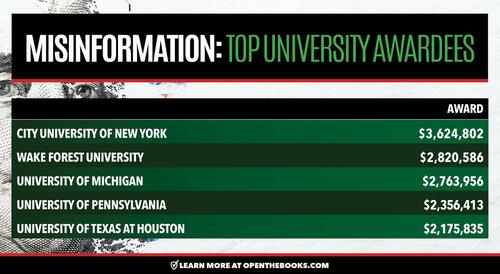
Although much of this research is academic, it is often intended to lay the groundwork for public interventions.
Examples include:
-
$2,356,413, Department of Health and Human Services, University of Pennsylvania, for “investigating and identifying the heterogeneity in COVID-19 misinformation exposure on social media among black and rural communities to inform precision public health messaging” because “misinformation contributes to confusion, distrust, and distress around health behaviors such as vaccination, mask wearing, and social distancing.” In other words, they wanted to find the different messages and media various communities were receiving in order to tailor the government’s rebuttal.
-
$2,175,835, Department of Health and Human Services, University of Texas Health Science Center at Houston, for research on the “social processes and cognitive factors underlying misinformation comprehension” in social media. By developing an algorithm to automatically detect “intent and belief attributes underlying COVID-19 misinformation” researchers can develop computational infrastructure to mitigate the spread of that misinformation “easing public health burden and informing policy regulations as needed.”
-
$348,310, Department of Health and Human Services, Michigan State University, “to counteract the negative impact of misinformation on digital platforms that threatens public health.” The overall goal of the project is “to develop a publicly accessible vaccine informatics system to track vaccine debate, and to test the impact of vaccine debate… during the onset of a global pandemic.”
OTHER GRANT EXAMPLES
$200,000 to Slander a Political Opponent
One notable research grant awarded to George Washington University in FY 2022 targeted former president Donald Trump. The study, called “Pandemic Communication in Time of Populism: Building Resilient Media and Ensuring Effective Pandemic Communication in Divided Societies” received a $199,516 grant from the National Science Foundation.
Researchers on this Biden-era grant examined how so-called “populist” leaders supposedly prevented society from coming together in “solidarity” during the COVID pandemic. Trump’s presidency was a focus of the research, along with the leaders of three other countries.
One researcher said in a video interview:
“What went wrong in different ways in all these countries and in a lot of countries around the world that had populist governments…there was just this very high level of polarization and politicization of the pandemic response…and it really interfered with the ability of society to pull together in a consistent way and to get through the pandemic.”
The research also concluded that “experts” should have the “main say” during the next public health crisis, with another investigator saying:
“One of the recommendations stemming from our strand is related to who is in charge of disseminating information related to the public health crisis, in our view based on the data that we have, it’s obvious that governments should allow the experts to have the main say in how society should respond to public health crisis.”
At the end of the video “climate change” is the next crisis these experts suggest requires strong public solidarity that populist leaders are incapable of creating.
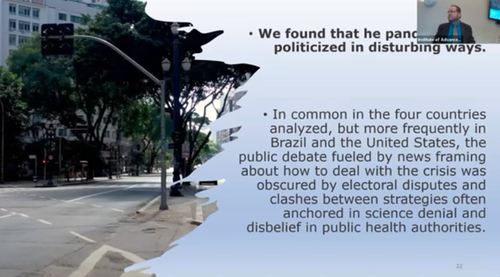
WILL THE NATIONAL ACADEMIES THEMSELVES SPREAD MISINFORMATION?
In a similar vein, $994,950 was awarded from the National Science Foundation to the National Academies of Science on “Understanding and Addressing Misinformation about Science.” This report was needed because, according to the grant description, “concern about the spread of misinformation and its role in undermining scientific expertise and facts in civic dialogue has grown significantly, especially over the last 5-10 years.”
The report has yet to be published, but there is reason to suspect it will also lack introspection from its supposed expert panel of researchers.
The chair of the research committee, Kasisomayajula Viswanath also worked on the report “Communication Strategies for Building October Confidence in COVID-19 Vaccines: Addressing 2021 Variants and Childhood Vaccinations.”
Viswanath said at the time to “continue to emphasize [to parents] how safe the vaccines are and how they are effective in preventing serious disease. More than 6 billion doses of vaccines have been given globally so far with very few serious adverse effects.”
But as the New York Times reported in February 2024, many other countries no longer recommend or even offer COVID-19 vaccinations or boosters for children.
The New York Times article suggested that U.S. Center for Disease Control’s recommendation for childhood vaccination diminishes the agency’s credibility, because, as other countries have concluded, the benefits of childhood COVID vaccines do not outweigh the costs.
It remains to be seen if this misstep in COVID policy will be a part of the new $1 million report on how misinformation erodes public faith in “scientific expertise.”
MISINFORMATION CONTRACT SPENDING
As we’ve illustrated, public grants focused on “dispelling” misinformation with supposedly accurate information in order to coerce people into compliance with health policy directives.
But beginning in 2020, contracts were often concerned with monitoring or eliminating supposed misinformation at its source.
Because contract descriptions are frequently vague, it is unclear how many are directly related to COVID-19. Only one explicitly mentioned the pandemic in its contract transaction description.
Examples of these misinformation contracts include:
- $300,000, Department of Health and Human Services, Innov8AI, “capturing medical misinformation in social media for targeted interdiction using an advanced AI solution set.” [Interdiction means “to forbid in a usually formal or authoritative manner,” according to Merriam-Webster Dictionary.]
- $300,000, Department of Health and Human Services, Melax Technologies, “real-time surveillance of vaccine misinformation from social media platforms using ontology and natural language processing technologies.” In other words, Melax would sort posts it deemed “misinformation” into categories to analyze.
- $299,964, Department of Health and Human Services, Gryphon Scientific, “systematic understanding and elimination of misinformation online.”
Other contracts raised eyebrows for different reasons:
- $1,205,826 from Department of Homeland Security went to defense contractor Guidehouse for “misinformation, disinformation, and malinformation analysis.”
NOTE: Malinformation is a controversial term for information that is true, but presented without sufficient context in a way that could mislead or harm. The opportunity to use this word to censor political or ideological opponents should be obvious.
- As first reported in the Daily Caller, Meedan Inc received $749,974 from the National Science Foundation’s Convergence Accelerator in 2022 for “FACT CHAMP: fact-checker, academic, and community collaboration tools combating hate, abuse, and misinformation with minority led partnerships,” later re-branded as Co-Insights.
The non-profit went on to receive $5 million more from NSF for the same project a year later.
A press release states the project will “narrow the gap between research into misinformation and responses designed to curb it.”
CONCLUSION
In October the House Committee on Energy & Commerce’s Subcommittee on Oversight and Investigations published a report outlining nearly $1 billion in spending on a vaccine promotional campaign. Despite this huge expenditure, the report notes that “the Campaign and the Biden Harris administration’s response to the pandemic resulted in a collapse of the public’s trust in public health messaging.” Report authors blamed flawed messaging about the effectiveness of masks, overstating the risk of COVID to children, and recommending vaccinations for all Americans over the age of 6 months.
It appears the administration most concerned with “misinformation” itself trafficked in misinformation: on masks, on risks to children, on social distancing, and on the need to vaccinate even infants. At least one grant specifically targeted the sitting president’s main political rival.
Americans simply cannot trust that continued grant and contract spending and various bureaucratic programmatic activities involved in “misinformation” will not be ideologically motivated to silence critics.
Case in point: a $249,691 grant from the federal Institute of Museum and Library Services to the University of Washington to build and deploy an “online escape room hosted by librarians” to address misinformation. The grant also included a co-design camp around the far-left Black Lives Matter movement to “demonstrate use of the design kit for creating interest-driven escape rooms.” (Play the escape room here.)
How much more misinformation spending is purely ideological or promoting contested or even false information?
No doubt the internet is awash with patently false information that can confuse and needlessly alarm readers. So far it has been proven, however, that the federal government is not capable of addressing this issue objectively. It would be better to stop entirely than further undermine federal credibility with accusations of partisanship and First Amendment rights violations.
The incoming Trump administration must end the government’s involvement in managing so-called misinformation, and Congress must keep the purse strings closed on this spending.
Otherwise, taxpayers remain at risk of underwriting their own censorship.
